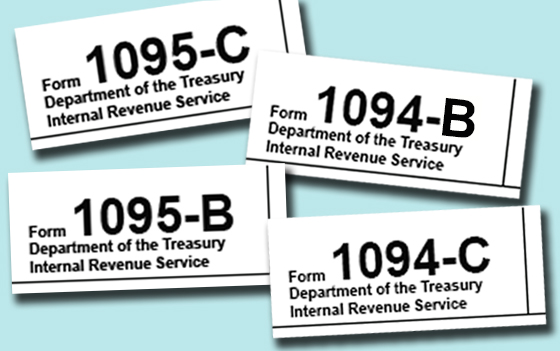The IRS released very important guidance concerning employers’ obligations under the Affordable Care Act. Notice 2020-76, released October 2, 2020, addresses a broad array of topics under the ACA compliance umbrella. This post addresses two issues of critical concern to Applicable Large Employers (ALEs), which are generally those employers with 50 or more full-time employees, including full-time equivalent employees, in the previous year.
Extension of Furnishing Deadline to March 2, 2021
First, Notice 2020-76 extends the furnishing deadline for Forms 1095-B (“Health Coverage”) and Forms 1095-C (“Employer-Provided Health Insurance Offers of Coverage”). Typically, insurers, self-insuring employers, applicable large employers (ALEs), and other entities obligated to provide minimum essential coverage under the ACA must furnish information returns (namely, Forms 1095-B and/or 1095-C) by January 31 of the year following the applicable ACA reporting year. For ACA reporting year 2020, the deadline to furnish information returns to employees and beneficiaries has now been pushed back to March 2, 2021.
Employers take note: Notice 2020-76 does NOT extend the deadline to file Forms 1094-B, 1095-B, 1094-C, or 1095-C. Your organization could still incur significant penalties under the ACA for failing to file by February 28, 2021 (March 31, 2021, if filed electronically) with the IRS.
Final Extension of Good-Faith Relief for Filing and Furnishing
Second, the Notice 2020-76 clarifies that 2020 will be the final year employers can utilize “Good-Faith Relief.”
IRS penalties for ACA non-compliance are steep and can have a significant effect on your organization’s bottom line. However, as IRS enforcement of the ACA has ramped up, employers have traditionally been able to apply for a form of relief that allows them to potentially avoid IRS tax penalties for non-compliance. This relief, known as “Good-Faith Relief” provides that employers that report incomplete or incorrect information on their information returns (including missing and inaccurate taxpayer-identification numbers or “TINs”) can show they made a good-faith effort to file and furnish. In determining whether Good-Faith Relief applies, the IRS will take into account whether an employer made reasonable efforts to prepare for reporting the required information to the IRS and furnishing it to employees and covered individuals, such as gathering and transmitting the necessary data or testing its ability to transmit information to the IRS. Yet, the 2020 reporting year will be the final year this type of relief is available. Notice 2020-76 conveys this plainly: “As this good-faith relief was intended to be transitional relief, this is the last year the Treasury Department and the IRS intend to provide this relief.”
Recent Posts
The U.S. Department of Labor Announces Proposed Rule To Protect Indoor, Outdoor Workers From Extreme Heat
The U.S. Department of Labor has proposed a new rule aimed at protecting workers from extreme heat hazards. This initiative seeks to safeguard approximately 36 [...]
Supreme Court Overturns Chevron Deference: What It Means for Workplace Safety and Regulation
The landscape of federal regulation is set for a seismic shift following a recent Supreme Court decision. On June 28, in Loper Bright Enterprises, et [...]
Navigating the Compliance Maze: How NARFA Simplifies Employee Benefits for Automotive and Trade Industries
In today's complex regulatory environment, businesses in the automotive, roads, fuel, and related industries face unprecedented challenges in managing employee benefits. Recent studies show that [...]




